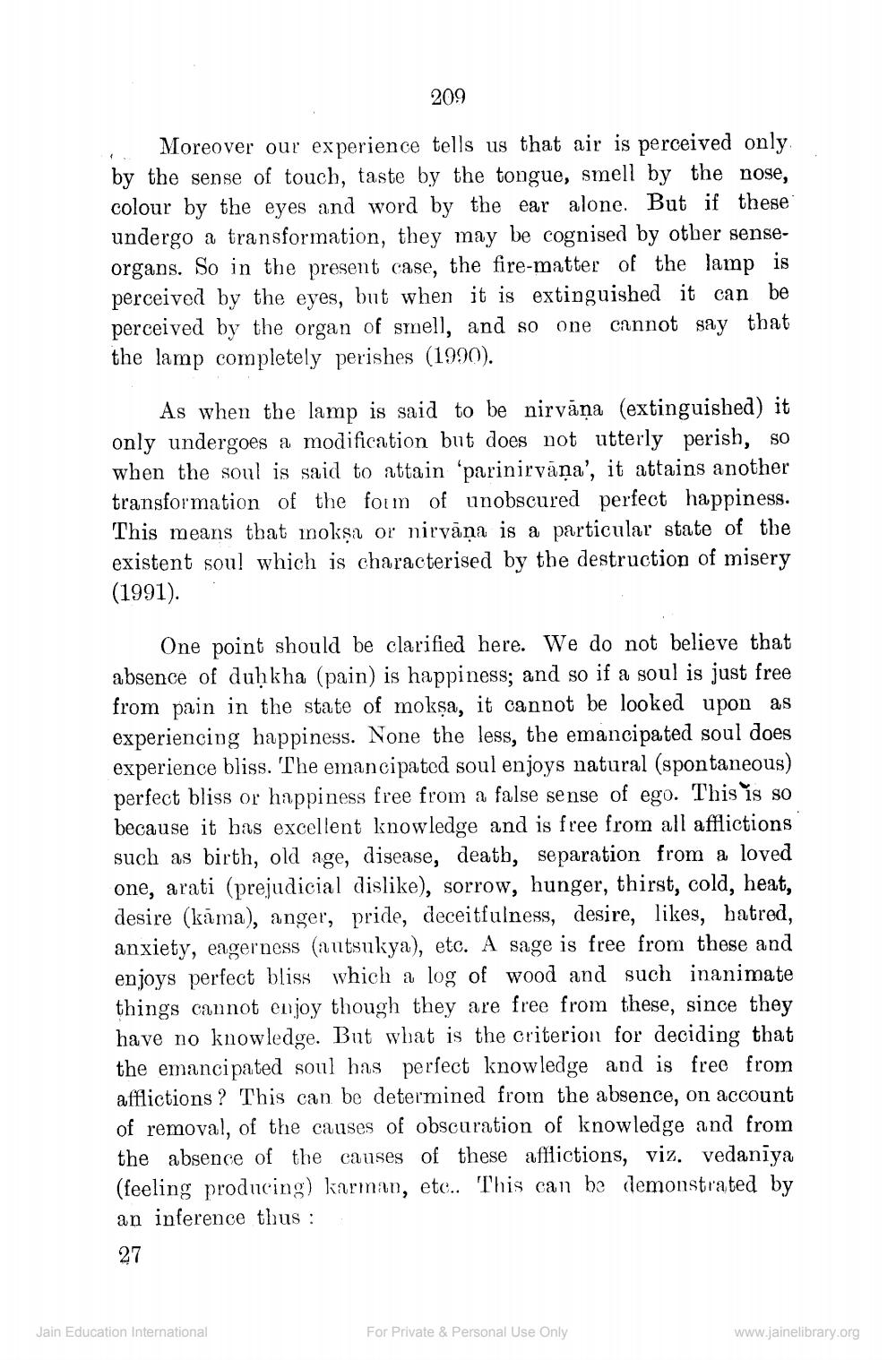________________
209
Moreover our experience tells us that air is perceived only by the sense of touch, taste by the tongue, smell by the nose, colour by the eyes and word by the ear alone. But if these undergo a transformation, they may be cognised by other senseorgans. So in the present case, the fire-matter of the lamp is perceived by the eyes, but when it is extinguished it can be perceived by the organ of smell, and so one cannot say that the lamp completely perishes (1990).
As when the lamp is said to be niryāņa (extinguished) it only undergoes a modification but does not utterly perish, so when the soul is said to attain ‘parinirvana', it attains another transformation of the foum of unobscured perfect happiness. This means that mokṣa or nirvana is a particular state of the existent soul which is characterised by the destruction of misery (1991).
One point should be clarified here. We do not believe that absence of duḥkha (pain) is happiness; and so if a soul is just free from pain in the state of moksa, it cannot be looked upon as experiencing happiness. None the less, the emancipated soul does
erience bliss. The emancipated soul enjoys natural (spontaneous) perfect bliss or happiness free from a false sense of ego. This is so because it has excellent knowledge and is free from all afflictions such as birth, old age, disease, death, separation from a loved one, arati (prejudicial dislike), sorrow, hunger, thirst, cold, heat, desire (kama), anger, pride, deceitfulness, desire, likes, hatred, anxiety, eagerness (autsukya), etc. A sage is free from these and enjoys perfect bliss which a log of wood and such inanimate things cannot enjoy though they are free from these, since they have no knowledge. But what is the criterion for deciding that the emancipated soul has perfect knowledge and is free from afflictions ? This can be determined from the absence, on account of removal, of the causes of obscuration of knowledge and from the absence of the causes of these afflictions, viz. vedanıya (feeling producing) karman, etc.. This can be demonstrated by an inference thus:
27
Jain Education International
For Private & Personal Use Only
www.jainelibrary.org




